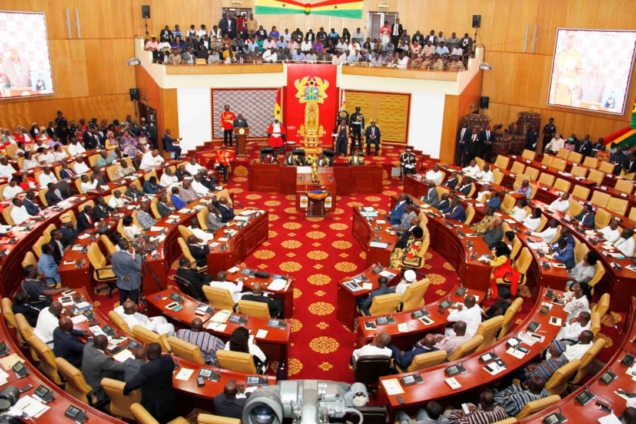A private legal practitioner and a one-time President of the Ghana Bar Association (GBA), Sam Okudzeto, has highlighted the crucial role of the judiciary in interpreting the law.
According to him, “Parliament makes the law but Parliament doesn’t interpret the law.”
His comments come in the wake of the confusion over the leadership composition of Parliament after Speaker Alban Bagbin declared four parliamentary seats vacant on Thursday, October 17.
Three of the affected seats belong to the NPP, with the fourth held by the NDC. The decision therefore engendered a new leadership crisis in Parliament, with the NDC which has been the Minority now claiming to be in the Majority with 136 seats against the NPP's 135.
However, on Friday, October 18, the Supreme Court ordered a stay of execution on Speaker Alban Bagbin's declaration, ordering Parliament to recognise and allow the four MPs to fully represent their constituencies and carry out their official duties until the substantive case is held.
Nonetheless, the NDC caucus has vowed not to relinquish its newly attained Majority status insisting the Supreme Court cannot usurp the powers of Parliament as an independent arm of government that works with its rules.
Several legal luminaries have shared varied opinions on the matter.
Speaking on JoyNews' The Probe on Sunday, October 20, Mr Okudzeto expressed concern over the stance some lawmakers have taken on the issue, arguing that the interpretation of the Constitution remains the prerogative of the Supreme Court, not Parliament.
“The constitution is the Supreme law of the land. It was not Parliament that made the constitution; it was the people of Ghana and the power to interpret the Constitution has been given to the Supreme Court,” he said on Sunday.
Mr Okudzeto criticised some of his colleagues in Parliament for what he described as the use of sentiments over legality in the interpretation of constitutional provisions.
He emphasised that the controversy surrounding the declaration of vacant seats should be resolved by the Supreme Court, as it is the institution constitutionally mandated to interpret the law.
“It is rather surprising that my legal colleagues in Parliament don’t want to apply their minds to legality but are instead trying to use sentiments to interpret the law, and I don’t think it is in the interest of Ghana,” he noted.
Latest Stories
-
Huge crowds gather in Israel calling for hostage deal and end to Gaza war
1 hour -
More than 200 missing in flood-hit district in Pakistan, official says
2 hours -
Putin agreed to ‘robust’ security guarantees for Ukraine, says US envoy
2 hours -
One arrested in Mpohor gold shop robbery, manhunt launched for accomplices
3 hours -
Asantehene marks ‘Kuntunkuni Dae’ in black and brown without ornaments
3 hours -
Barker-Vormawor criticises GTEC over professorial title controversy
4 hours -
Alan Kyerematen unveils 10-point action plan to end galamsey after helicopter tragedy
6 hours -
Mahama embarks on official visits to Japan and Singapore
7 hours -
Families of late Omane Boamah and Peter Anala receive blessings at thanksgiving mass
7 hours -
Palestinians flee IDF attacks on Gaza City as Israelis protest against occupation plan
10 hours -
Loyalty programmes in Ghana: The next frontier in customer retention
12 hours -
Bright Atter: “No refunds” by retailers is just a scarecrow
12 hours -
Stop using ‘unearned’ academic title or face us in court – GTEC writes to Chief of Staff on Deputy Minister of Health Grace Ayensu-Danquah’s title
12 hours -
Central Regional Police hunt armed robbers after foiled bank attack
12 hours -
GPRTU threatens sit-down strike over Pokuase-Nsawam road
12 hours

